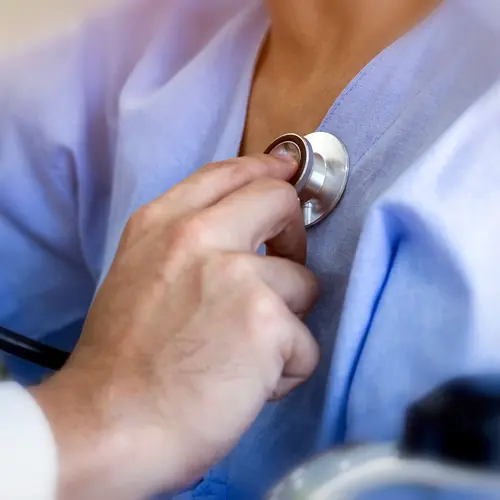A palpitation is when it feels like your heart is racing, pounding, thumping, flopping, or fluttering. You may feel it in your chest, throat, or neck. It may feel like your heart’s rhythm is off, that it’s skipping beats or beating too hard or too fast. This feeling can come at any time: when you’re active, sitting still, or lying down.
Causes of Heart Palpitations
Heart palpitations every now and then are common. They’re usually harmless, and most of the time they go away on their own. But they can be alarming, especially if you don’t know the cause. Palpitations can happen for many reasons:
- Low blood sugar
- Anemia
- Thyroid disease
- Low blood pressure
- Strong emotions, including stress, anxiety, and depression
- Intense exercise
- Hormone changes from menstruation, pregnancy, or menopause
- Medications that contain pseudoephedrine, such as cold and cough medicines
- Stimulants such as caffeine, nicotine, amphetamines, and cocaine
Heart palpitations that are severe or go on for a long time could be signs or red flags of a serious heart problem that is a health emergency.
When to Call 911
A few cues for you to call 911 and seek medical help right away are if your heart palpitations last a few minutes or longer, if your symptoms are new or get worse, or if they happen alongside other symptoms such as:
- Pain, pressure, or tightness in your chest
- Aching in your neck, jaw, upper back or arm(s)
- Shortness of breath
- Unusual sweating
- Dizziness or lightheadedness
- Symptoms that don’t get better with breathing exercises
You should also call 911 right away if someone you’re with complains of heart palpitations along with chest pains, dizziness, unusual sweating, or lightheadedness, or if they faint, feel lightheaded, or lose consciousness.
How to Get There
If you have any of the above symptoms, it might be dangerous to drive yourself to the hospital.
You might think you can drive yourself. You may not want to overreact, or you may be worried about the cost. But when it comes to symptoms related to your heart and lungs, you should ask the nearest person to take you or call 911 to ask for an ambulance. EMTs can start your care on the drive, and that may make all the difference in helping you recover.
What to Expect
It helps to know what will happen if you go to the ER for heart palpitations. When you get there, the urgent care or medical staff may do a physical exam. They may also run some other tests to figure out the main cause of your symptoms. These may include:
- Electrocardiogram (EKG or ECG): Records the electrical signals that trigger your heartbeat
- Holter monitor or event recording: A device that you wear for 24 to 72 hours to record a continuous EKG report
- Echocardiogram: Uses sound waves to create a moving picture of your heart
- Stress test: Shows how your heart functions when you’re active. Your pulse, breathing, and blood pressure are recorded while you ride an exercise bike or walk on a treadmill.
- Chest X-ray: Creates pictures of your heart using electromagnetic radiation
- Ultrasound or sonogram: Uses sound waves to create an image of your heart
They may also do urine and blood tests to check for conditions such as a problem with your thyroid gland.
Afterward, they might give you some suggestions on what you can do to address your symptoms and ask you to track any changes. They may also schedule follow-up appointments over the next few weeks to check on you.

